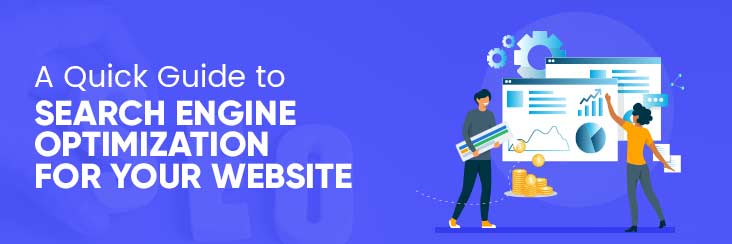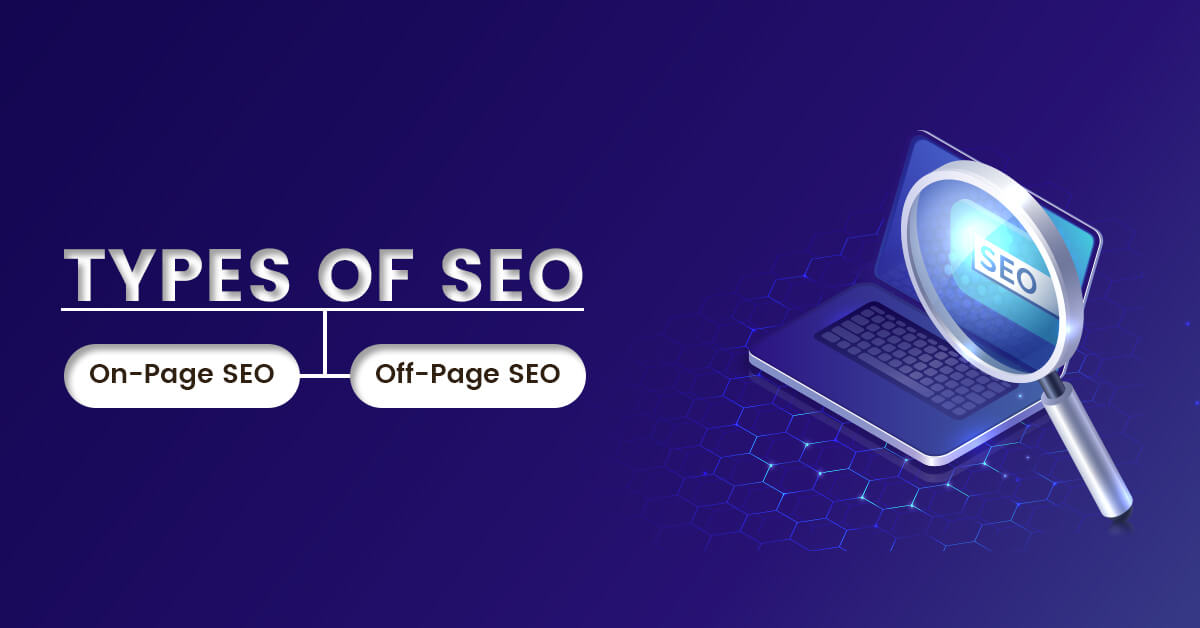

A quick guide to Search Engine Optimization of your website.

Running short of time? Get PDF of the blog in your mail.
|
Play Now

|
SEO stands for Search Engine Optimization. It is the practice of increasing the organic traffic and visibility of the website through organic means. It gives exposure to your website through non paid search engine results. Knowing your audience intent is one of the most important intent. Moreover, delivering the content in a way that search engine crawlers can understand is the crucial aspect of SEO. It is made up of multiple key elements and knowing how they work is the key to understand why SEO is necessary. It makes your website visible which signifies more traffic and more opportunities for the marketers.
Apart from this it is a valuable tool for brand awareness, building prospects and positioning yourself as a trustworthy expert in the respective field. Websites with more than one author have more chances of benefit in direct as well as indirect way.
Important Aspects of SEO
Content
It is the vital aspect of Search Engine Optimization because it is when you create engaging content that reach your target audience. For example if you own a flower shop and want to increase its visibility then you might publish blogs about different kinds of flowers, their specialty, aroma etc. Content should be interesting and readable which can easily engage the audience. Content can be in various forms such as – Info-graphics Video Podcasts Blogs Social Media posts
Keywords
Keywords play the most significant role in Search Engine Optimization. They are basically the words that are used to find the brands or online content in order to be effective. Include keywords that have high search volume, more visibility and less competition, they should be chosen wisely and must be well researched. Try to include long tail keywords and local keywords. Keywords are crucial for the optimization of titles, descriptions, product pages, URLs and much more.
Local SEO
This factor is becoming more and more important as most of the people are using mobile devices. Other local best SEO practices include:
- Directory listing
- Creating pages for business on Google Maps, Google+
- Creating location specific pages for your website
Off – Page SEO
It includes external optimization practices thus promoting your site on various social media platforms therefore increasing the visibility of the website so that it can rank higher in the search engine result pages. The main techniques of off- page SEO includes:
- Guest Blogging
- Mentioning influencers in your blog
- Directory Submission
- Bookmarking Submission
- Forum Posting
Purpose of SEO in day to day business
- Increased organic traffic is the major goal of SEO and the traffic is increased when there is an increase in ranking and visibility.
- If you want more users to find your website, then you need to be familiar with the SEO practices for ranking among the top 5 positions or initially number one position.
- The concept of authority is new in SEO but it’s becoming very necessary for search engines because of its importance for search users.
- Another purpose of SEO is it helps in improving the usability of your website which helps in creating a positive user experience.
- SEO also helps in achieving many business goals which include more sales, more loyal and satisfactory customers or users and more growth of the business.
- It is also good for social promotions for your website like Facebook, Instagram, Twitter etc.
Website’s loading time
Page speed is basically the measurement of how fast the content of your website loads. A few extra seconds can have a huge impact over the site and your ability to engage users and make maximum sales. A fast loading site is very essential for ranking well in the search engine result pages (SERPs) and for also keeping your profits high and at optimum level. GTmetrix is a free tool which analyses the performance and speed of the website.
These are the best practices that helps you in improving your site’s performance:
Try to Minimize HTTP Requests
Most of the loading time is spent in downloading the different components of the page such as stylesheets, images, scripts so the more on- page components, the longer it would take for the pages to load. You can use the browser’s Developer tools if you are using Google Chrome to analyse how many HTTP requests your website makes.
Minify and Combine files
These files are very important as they tell you about the website’s appearance. You can add a number of requests to your website whenever a user visits it. Minifying and combining files helps in reducing the size of each file as well as total number of files. If your website runs on multiple javascript and CSS files, you can combine them too.
Try to reduce server Response Time
One of the biggest factors is knowing how fast your page loads that is the amount of time your DNS lookup consumes. A DNS lookup is the process of finding a specific lookup record. The amount of time this process takes depends upon how fast your DNS provider is working.
Choose the perfect hosting option as per your need
When looking for hosting there are three different options:
- VPS hosting
- Dedicated Server
- Shared hosting
Shared hosting is one of the cheapest options which is fine for low traffic sites while in VPS server you have to share the server with other sites but it also provides you with a dedicated portion of the server resources therefore protects your website on the server for hosting.
Enable Compression
It is one of the best and the easiest ways to reduce load times. Enabling compression with Gzip is considered as a standard practise. Gzip locates the strings of codes in the specific files then temporarily replaces them thus making the files smaller.
Difference between off-page & on-page SEO
Every E commerce business wants to rank the website at the top of search engine result pages. There are two SEO factors that would help you in ranking higher – On-Page SEO Off-Page SEO.
On-page SEO is initially the practice of optimizing web pages which can further improve the website’s ranking and can earn organic traffic. On-page SEO also includes publishing high quality content, optimizing the title tags, HTML tags, images etc thus making sure that the website has a high level of expertise and trustworthiness.
Benefits of On-page SEO
On-page SEO is necessary because it helps users understand the website and its optimized content so that there is a greater focus towards relevance and semantics in search engine result pages.
Higher rankings in the search engine result pages (SERPs) – Creating high quality and optimum content and then optimizing them by applying on-page strategies can assist with listings higher in the search engine.
Helps in improved Local search – On-page SEO is the best practice for increasing the local visibility and reach among your specific audience which initiates and brings many leads and sales that don’t have an online presence.
On-Page Search Engine Optimization enhances the click through rate – It helps in organic higher ranking and getting more clicks on the posts by the users. It is also the optimal creation of meta tags and descriptions which is a crucial step towards obtaining a better click-through rate.
Brand Awareness – Great exposure of your website on search engine result pages can lead to maximum enhancement of your brand value. The more your content pages will rank, the more brand equity it would build to boost your sales.
Faster website speed – With HTML coding and other fundamentals of the website you can attain higher rankings in addition to the high web content which can be created through highly emphasizing on the best SEO techniques.
Top Off-Page SEO activities:
Off-page SEO refers to the practice that you do outside for your website such as link building, directory submissions, influencer outreach and many more. These off-page activities help search engines understand about the content and products on the website with high authority levels which increases the chances of ranking higher.
Review Sites – Many e-commerce owners ask customers to list the review as to build trust among prospects. Having reviews live on third parties is one of the most effective off-Page SEO techniques for websites for ranking higher in the search engine result pages (SERPs).
Social Media Activities – It is one of the most effective Off-Page SEO techniques for the eCommerce website which is helpful in boosting your efforts within a limited lifespan which when combined can have a minuscule effect and leads to a powerful ranking factor.
Social Bookmarking – It is a method or procedure of submitting web pages to social platforms such as: Pinterest, Reddit, Digg, Stumbleupon, Tumblr and many more. Once the web pages are submitted, users can bookmark relevant product pages. Most of the bookmarks are usually public and can be viewed by other site members.
Guest Blogging – It’s like a link building technique used widely in the SEO industry. Although Google has discouraged various guest blogging practices because they can be spammy especially when the ideology is to build large scale links. However, if you hit on the niche platforms for guest posts, you can win high quality link build up for your blog/website.
Q and A Websites – Writing relevant and authentic content is a great practice for eCommerce websites. Specific sites like quora and stack overflow asks for help on all kinds of issues and queries relevant to their specified industry.
Conclusion
SEO can help businesses achieve a number of goals if the strategies are implemented as the guidelines. That is why it’s very necessary for digital marketers to have a solid grip over SEO techniques and its algorithms. An excellent and well planned On-page SEO campaign as well as following the best Off-Page SEO practices are a must for every industry having an online presence. Thus, you can Schedule a Meeting with our SEO experts today and let them optimize your website while you just reap the maximum benefits.
